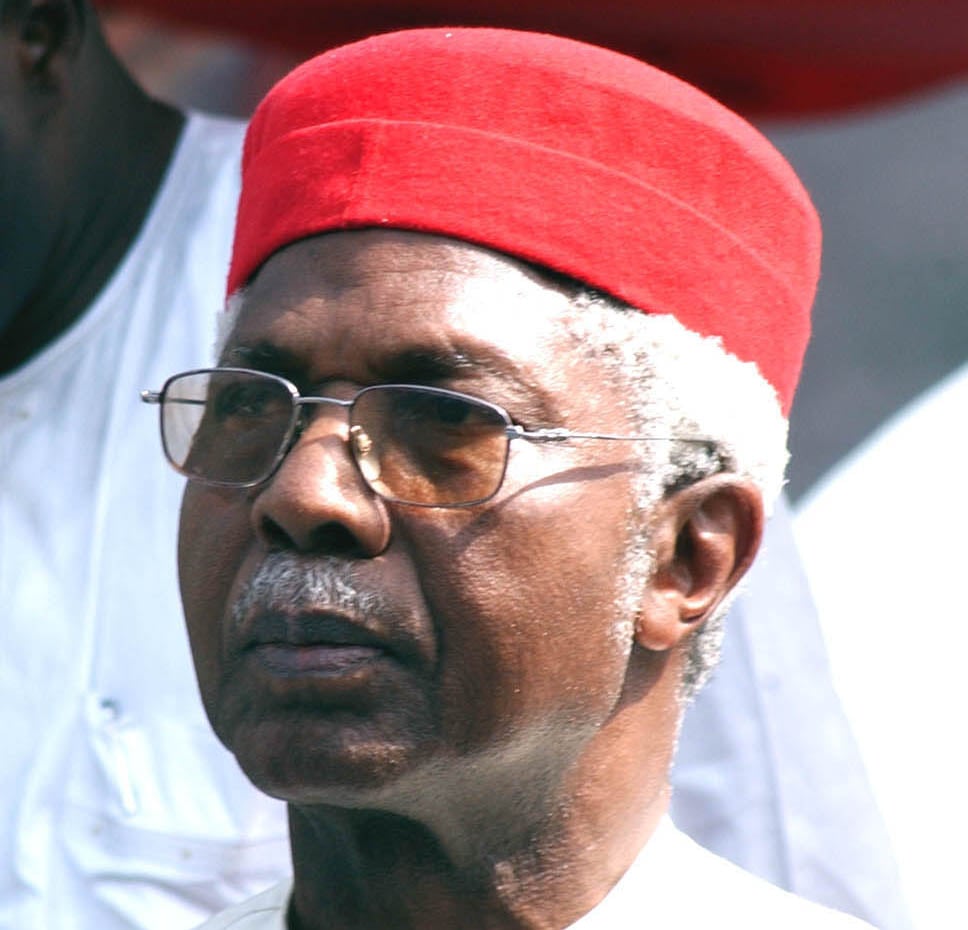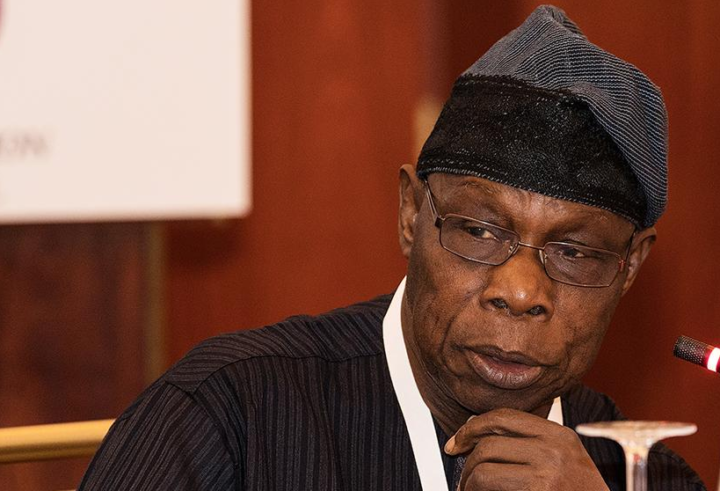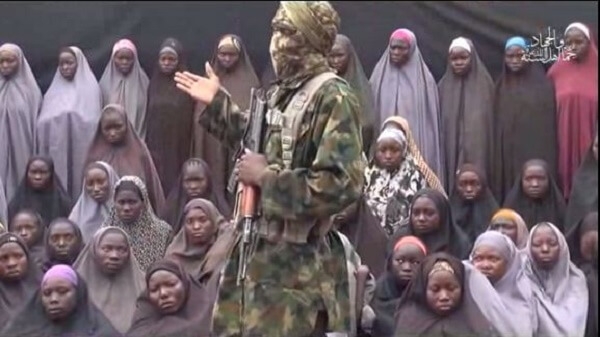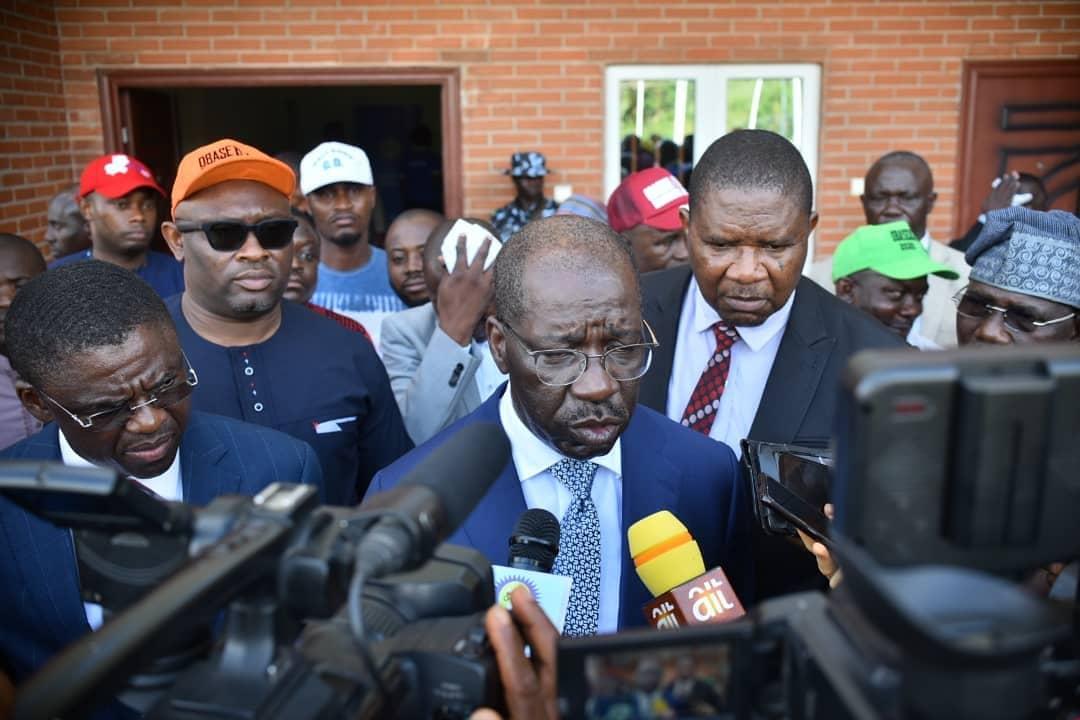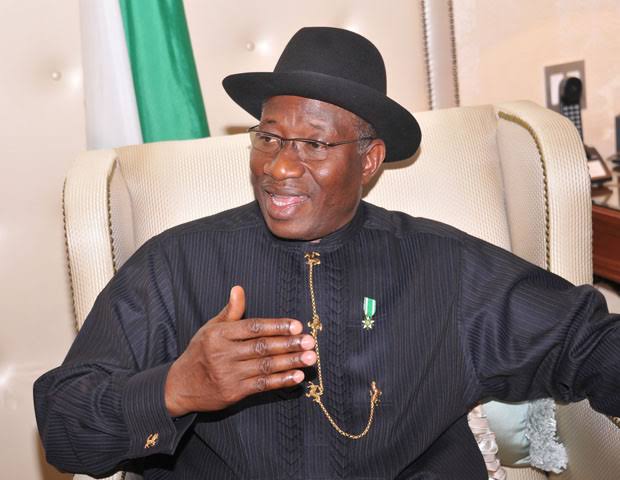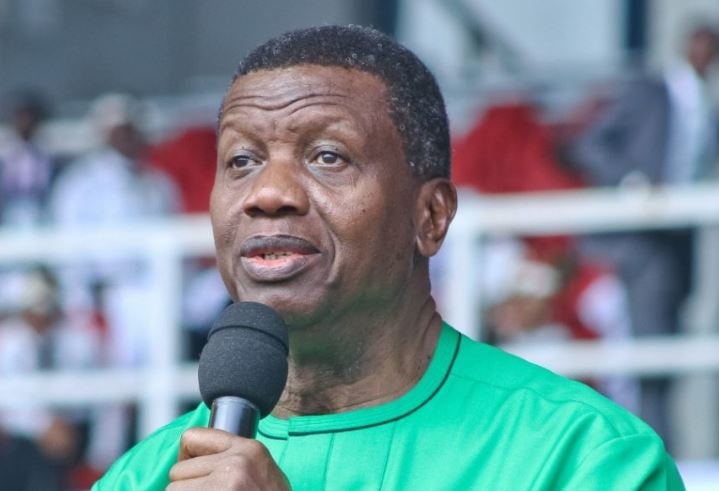Pic 22. Former First Elected Vice President of Nigeria, Dr Alex Ifeanyichukwu Ekwueme who died in a London Hospital on Sunday (19/11/17)
Born: October 21, 1932. Died: November 19 2017
06271/20/11/2017/NAN ACHIVE/ICE/NAN
Here we go again: in 2023, whose turn? In Nigeria, nothing excites us like politics. If you want to get our attention, don’t waste your time writing about quality of life, potable water, sanitation, maternal health or out-of-school children. There are more important things that excite us: political intrigues, permutations, elections, all that. I am in the news business and I know what I am talking about. Publish a story that says 63 million Nigerians do not have access to clean water and nobody will touch it. Speculate on who is likely to be fielded as the APC presidential candidate and it will catch fire immediately. That is how we are wired: more excited over sensation, less over substance.
The hottest topic in town now is what region will produce the next president. Between 1999 and 2023, northerners would have ruled for 11 years and southerners for 13 years. It has gone south-north-south-north since the dawn of this democracy. The street permutation would be that south should be the next. However, there is no legal binding on it. President Muhammadu Buhari, in particular, has never shown any appetite for power rotation. He contested every presidential election between 2003 and 2019, no matter the region that felt it was its turn. If we are to use this as a yardstick, we can say he cannot be bothered what region produces his successor.
Many southerners typically assume that power would return to the region after Buhari’s exit. That is just one leg of the argument. If it is coming to the south, what zone? That is another leg. The south-west is staking a claim. Many will argue that the south-west should give way to other zones in the southern region having produced a president for eight years (1999-2007) and VP for another eight years (2015-2023, all things being equal). South-west’s counter claim, nevertheless, would be that the zone is where APC, the ruling party, is most popular in the south and it should be allowed to reap the reward of its political alliance. Whatever, many south-westerners are warming up anyway.
The south-south is also making a strong claim, having done only one term before. It is the zone where the nation’s oil revenue is derived. Dr Goodluck Jonathan accidentally became president in 2010 after the death of President Umaru Musa Yar’Adua. Despite strong opposition from the north over power rotation, Jonathan defied the agitation and made a successful bid in 2011, defeating Buhari. But Jonathan did not do a second term as he lost to Buhari in 2015. He did the unthinkable by conceding the election while results were still being announced, although many of his supporters were embittered and felt he was “chased” out of office because he was a southern minority.
Advertisement
The south-east has the strongest claim, having not produced a No 1 or No 2 since 1999. In fact, the zone has not produced an elected president since Independence, even though the Igbo are one of the three biggest ethnic groups in Nigeria (the others being Hausa/Fulani and Yoruba). Ordinarily, therefore, if it is going to be the turn of the south in 2023 amid the “equity” talk, there should be no argument on where power should go. But there is this impression that based on the activities and rhetoric of IPOB and other groups, the Igbo would genuinely rather not be part of Nigeria. More so, APC, the ruling party, is least loved in the zone — where PDP has always won convincingly.
Where do I stand in all of this? Perhaps it bears repeating that I believe in equity as much as I believe in merit and justice. In simple English, I believe in power rotation. Still, there are circumstances that may affect the north-south arrangement — as we saw with the death of Yar’Adua in 2010. Those were extraordinary circumstances. Jonathan was blamed for not respecting the rotation principle of the PDP when he ran in 2011 instead of allowing the north keep power. I still would not blame him. In the absence of any compelling law, things were complicated. For one, I don’t know anyone else who would have the constitutional right to succeed the president and let it go just like that.
There was a moral argument too — that even if the constitution did not disqualify Jonathan from running, he should still have been a gentleman and stuck to his party’s “zoning” arrangement. But I would also think that any northerner who took over from him in 2011 would not do one term only. No president would have an opportunity of a second term and throw it away, except it is Dr Nelson Mandela. We are yet to get over the political bitterness caused by the consequences of Yar’Adua’s death. The bad blood generated by Jonatan’s decision to contest still runs deep. We saw how the 2015 election season went and how the poison is very much in the system till this moment.
Advertisement
Unfortunately, the Yar’Adua situation has still not been adequately addressed. The starting point for us as a polity is to answer the question: do we really want to rotate presidential power? We need to reach a consensus on this. If the answer is yes, we need to create the certainty that power would rotate. That can only be guaranteed through the constitution. It cannot be left to individual parties to decide — because the parties are also in a competition and are trying to outdo each other. PDP and APC are carefully quiet on where their presidential tickets would go in 2023. Nobody wants to take the risk of zoning to one region while the other picks another region. A case of who blinks first?
If there had been legal certainty in 2011, Jonathan would not have been able to run. Rotation was a PDP, not a constitutional, arrangement. If we can enshrine it in the constitution, that can reduce the perennial tension over equity. Dr Alex Ekwueme, former vice-president, came up with an elaborate proposal to take care of our complex political configuration at the 1995 constitutional conference. He proposed a six-zone structure and a single presidential term. Power would rotate between the north and the south, and also within the geo-political zones in each region. Every zone’s turn would be guaranteed. No arguments. FIFA has achieved that with World Cup hosting among the continents.
Ekwueme, a sagacious political thinker, also proposed six vice-presidents, each representing a zone. If, for any reason, the president does not serve her full term (maybe because of resignation, impeachment or death), the VP from the zone will replace her, complete the term and power will move to the next region and zone at the next election. This means a lot. A northerner would have finished Yar’Adua’s term and the bad blood would have been avoided. The high tension over Buhari’s ill health in 2017 would also have been avoided. As things stand today, any attempt to impeach a president will fail because of the geo-political sensitivity: the VP will become president.
If I recall correctly, Ekwueme also proposed a sunset clause. Power rotation would not be forever. When presidency has gone round all the zones, it would be thrown open. By his own calculations, Nigeria would have grown politically and outgrown rotation by then. I am not saying his proposal would solve all our political problems. That is not the point. In fact, it is not as if our sub-identities are settled. Of the six zones, only the south-east is close to homogeneity in ethnicity and religion — the two biggest identifiers in Nigeria. The rest of us are far from homogenous. I admit that rotation does not solve all problems but we need some wisdom to manage our peculiar complexities.
Advertisement
If I were in a room where these decisions are made, I would raise up my hand and suggest that we should strongly reconsider and adopt the Ekwueme proposals as we amend the constitution. In fact, I would further suggest that we should consider a similar arrangement at the state level so that every senatorial district can be accommodated and no district can lord it over the other as it currently obtains in many states. I really admire what Delta state, and a few others, have been able to do in this regard. Many of those campaigning for power and equity at the centre are actually oppressing the minorities in their own states. But in Nigeria, we have to heap all blame on Abuja.
For clarity, I would say again that I believe in merit as much as I believe in equity. I do not believe that merit and equity are mutually exclusive. There is no state in Nigeria that does not have educated, experienced and competent people who can be president. Take that from me. In fact, if you challenge me, I can give you a shortlist of five solid presidential materials from every state of the federation. I do not subscribe to the notion that only a part of Nigeria can produce competent leaders. Inasmuch as our governors have not turned their states to paradise, nobody has the moral right to say one ethnic group or geo-political zone has all the competence. That is my view.
To my mind, federal character and power rotation are instruments of accommodation in a multi-ethnic polity so that nobody is left out in the cold. In a society where there is mutual suspicion, where there are fears of domination and marginalisation, where there is a fierce competition for power, I will keep arguing that it is in the interest of our peace and progress to have an accommodating political arrangement so that all the people will feel that they belong. Attaining political stability is very critical to the development of Nigeria. We can only have peace and progress if we get the political atmosphere right. As things stand, we are too bitterly divided to think straight.
AND FOUR OTHER THINGS…
GHANA VS NIGERIA
Advertisement
Twitter’s decision to locate its Africa headquarters in Ghana has generated a lot of debate. Some Nigerians are celebrating it, partly in the belief that it is an indictment on the Buhari administration. To be fair, Ghana has been beating Nigeria to many things long before Buhari came to power. Who still remembers that President Barack Obama visited Ghana and shunned Nigeria in 2013 and people said it was because the Jonathan administration was corrupt? In all, Ghana is more stable and orderly than Nigeria. If we are wise, then, we should start asking ourselves the hard questions on how Nigeria can reform and become a more hospitable environment to business. Introspection.
PANTS DOWN?
Advertisement
Alhaji Isa Ali Pantami, minister of communication and digital economy, has been in the news since it was reported that he was on the US watchlist over alleged links to terrorists. The report has now been retracted with apology, but old tapes are emerging tending to prove that Pantami used to be sympathetic to terror groups. He has denied the allegations and argued, instead, that he was opposed to their murderous ideology. It shouldn’t be a crime that Pantami is an Islamic cleric. There are pastors in government, right? However, while I admit that people change their opinions as they grow older and wiser, we need to be assured that Pantami does not support terrorism. Imperative.
PRINTER’S DEVIL
Advertisement
Governor Godwin Obaseki of Edo state caused some sensation when he alleged that N60 billion was printed to augment March allocations. Nigeria is in dire financial straits because of COVID and low oil production. Under such situations, central banks can “print money” for governments via “ways and means advances” (which are loans, as explained by the CBN governor, Mr Godwin Emefiele). My little understanding of FAAC is that it only shares federally collected revenues as reported by NNPC, FIRS and Customs, etc. These are clearly itemised. So, did FAAC list “printed money” as revenue? It appears Obaseki, a financial expert, goofed but has gone too far to correct himself. Puzzling.
IN MEMORIAM
Advertisement
Exactly one year yesterday, Mallam Abba Kyari, the ex-chief of staff to President Buhari and probably the most hated human being in Nigeria, died after contracting COVID. Although he was said to have tested negative after treatment, he did not survive the complications because of underlying conditions. If the dead could talk, he would probably be thanking God that he escaped many things that would have been blamed on him, such as the removal of Mallam Ibrahim Magu as EFCC chairman, Mrs Aisha Buhari’s prolonged stay in Dubai and the “printing of N60 billion”. Kyari was certainly not perfect but he unquestionably put in a decent shift in his service to fatherland. Life.
Add a comment

